The pitfalls of mini-NGOs teaming up internationally
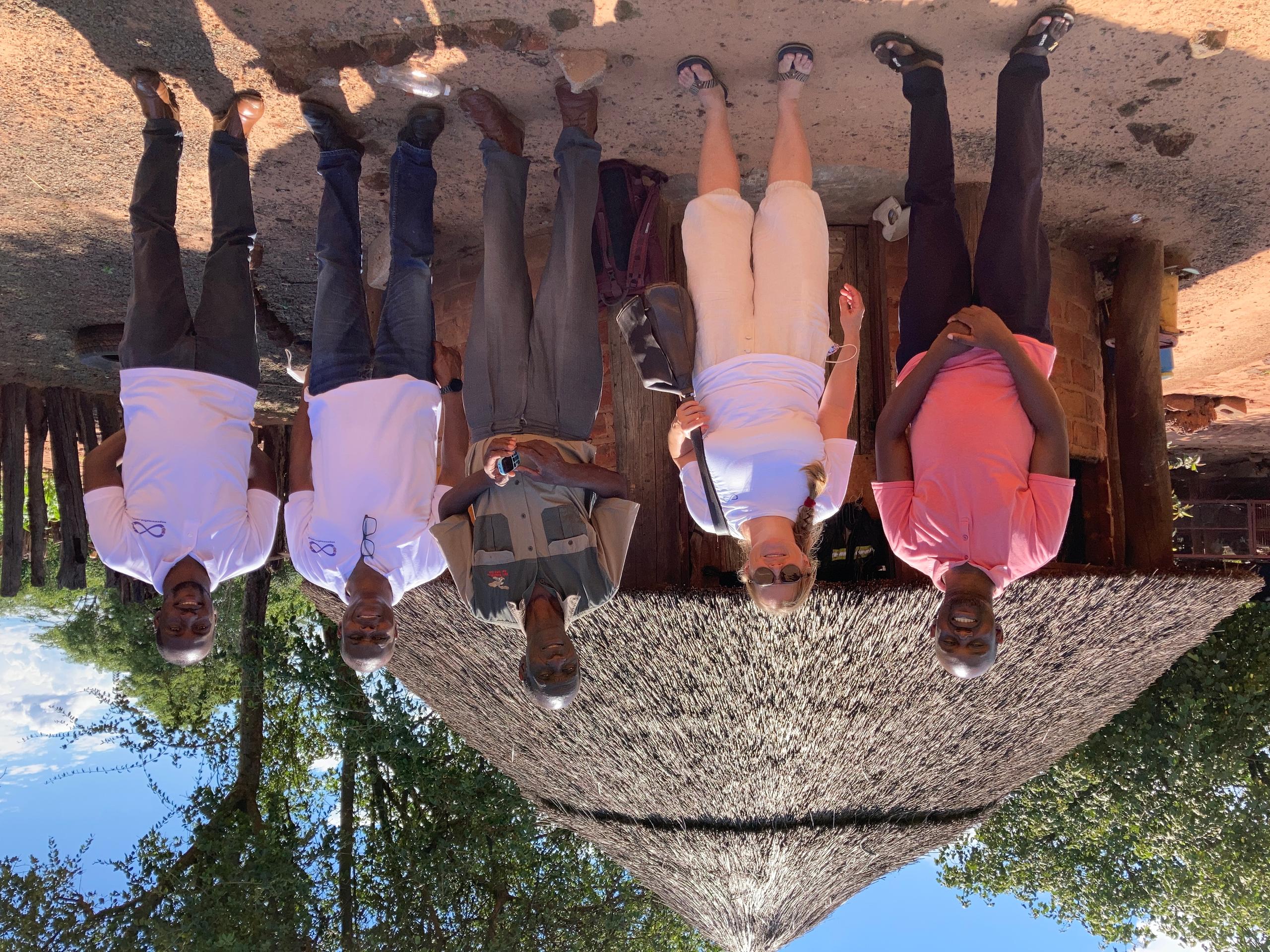
Thanks to the internet and social networks, people from the Global South can build contacts with Western countries quickly and easily. But working methods and ideas don’t always coincide, as a Swiss-Ugandan collaboration shows.
It all started so well. Swiss native Brigit Koch and her partner Anthony Powell, a Briton from the Caribbean, used their own savings to initiate the globally active “Patronage Association of empowermefirst.collegeExternal link”, which aims to enable young people to earn a high school diploma via smartphone.
Through social media the couple met Aggrey Bwaita, a young Ugandan who wants to use his platform “Youth Coffee Talk Africa” to empower young people and motivate them to volunteer in the community.
Koch and Powell had the idea of founding an offshoot of their organisation in Uganda with the help of Bwaita. Contact was quickly set up via the internet.
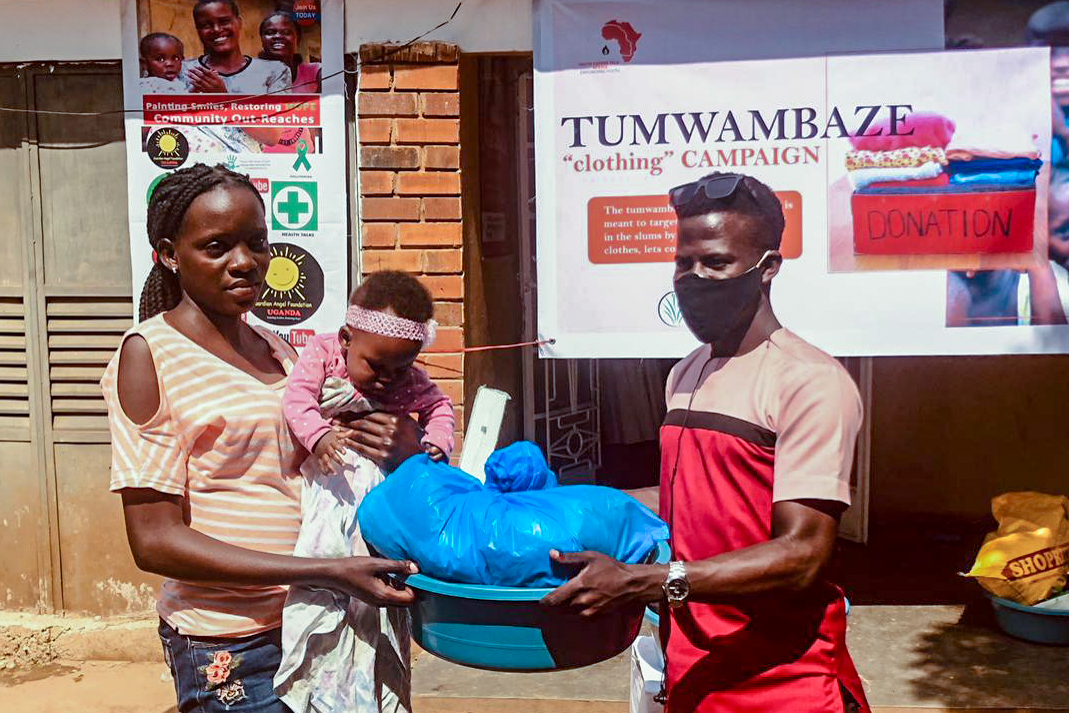
More
How Western development aid continues to stifle local initiatives
The couple travelled to Uganda, provided Bwaita with a computer and some money, and, through Bwaita’s mediation, met local officials and other Youth Coffee Talk Africa volunteers. In addition, Henry Lutwama, then personal assistant to Uganda’s Minister of Education, was recruited to serve on the board. But to this day no foundation has been established.
And there was worse to come. In March 2022 Anthony Powell died unexpectedly of a pulmonary embolism. Since then, the north-south partnership has gone downhill. Both sides told SWI swissinfo.ch that the collaboration no longer match their idea of a partnership.
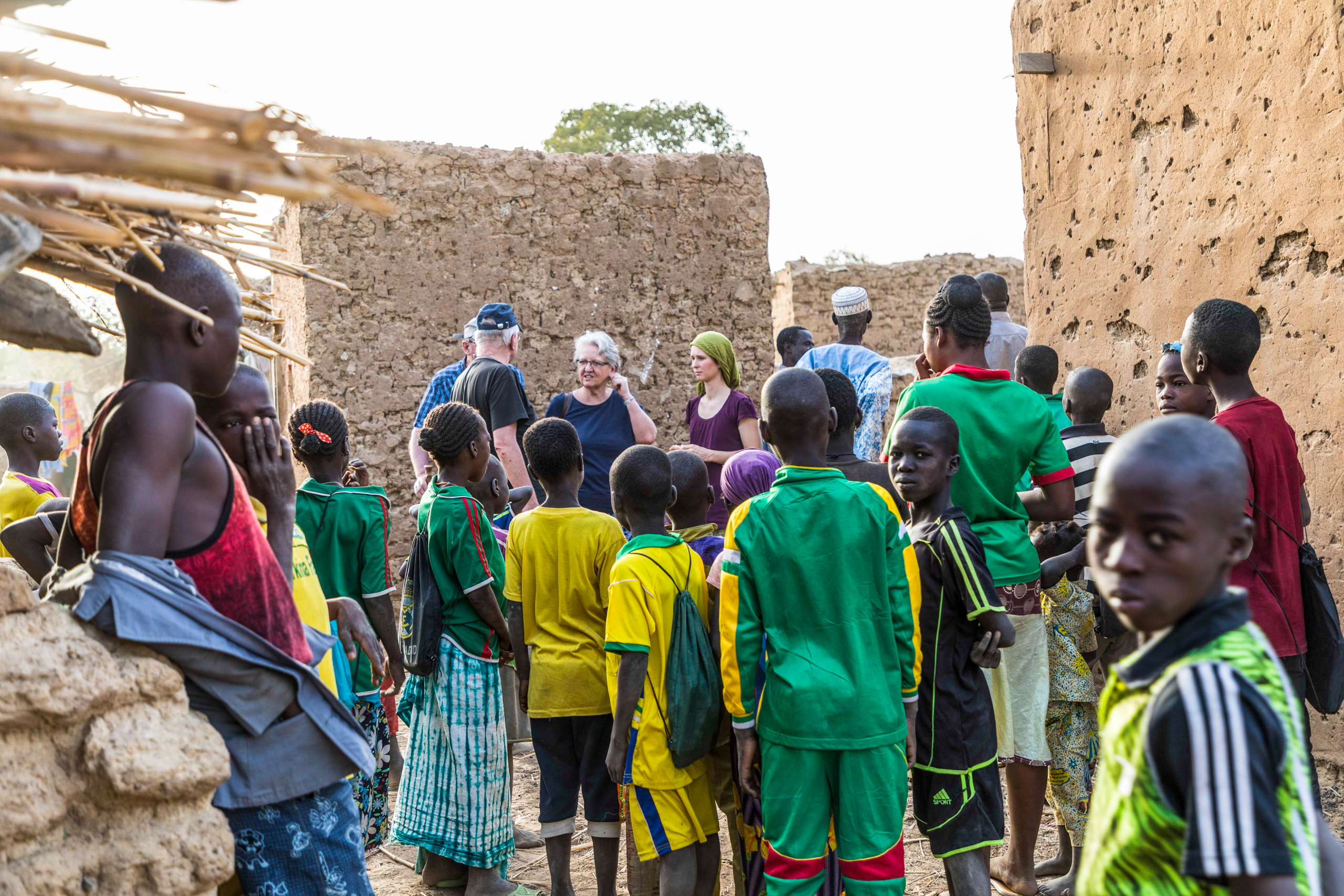
More
Can ‘hobby’ NGOs deliver sustainable aid?
Different perceptions
If you ask where the problem lies, you get two different answers. Brigit Koch thinks Bwaita and his friends are just putting on a show on social media instead of producing presentable results or keeping promises and deadlines. She has withdrawn her organisation because the promised tasks, such as coaching learners, have not been fulfilled.
In addition, Koch says there are conflicting interpretations of clean accounting. She says Bwaita should have provided proof of his expenses with receipts, otherwise her Swiss association would be violating accountability obligations. Therefore, and also because the foundation did not materialise, she wants the thousand francs and the computer to be returned. “Not only I but also our volunteers in Zimbabwe have told Henry Lutwama, Aggrey Bwaita and other volunteers in Uganda several times that we are required to follow the rules and standards.”
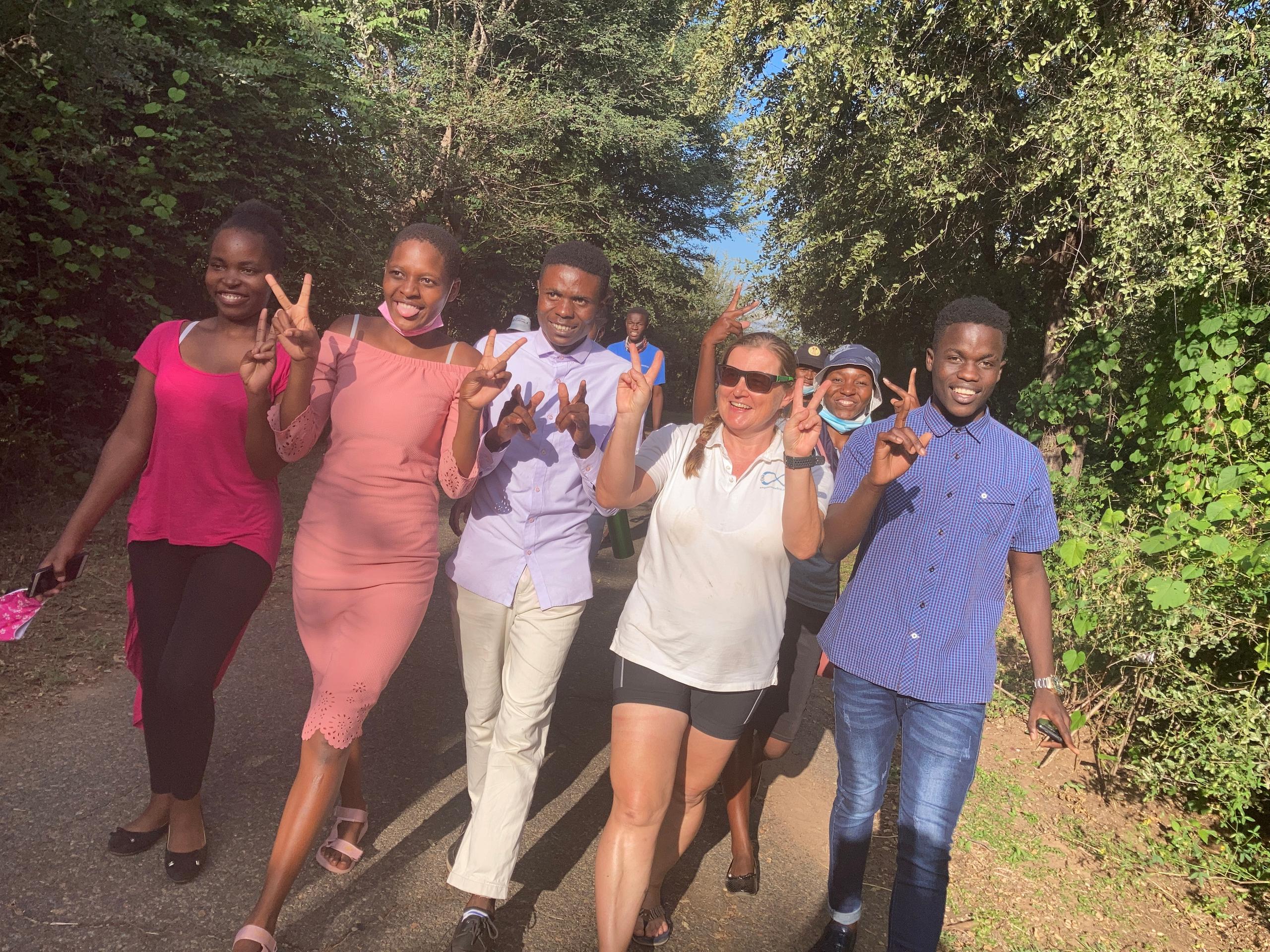
Bwaita, on the other hand, sees things differently. He says he picked up the couple from the airport and set up several meetings with Ugandan authorities. “I had expenses and put in the effort, but Brigit wants all the money back.” He says he won’t be able to pay it; he is still a student. In addition – according to his account, which Koch disputes – there are still outstanding bills. “Brigit has failed to pay bills that she left for the coordinator in Soroti district in Uganda,” Bwaita said.
He says Koch gave part of the money to Henry Lutwama. Lutwama did not respond to inquiries from SWI swissinfo.ch.
Bwaita says it is not customary in Uganda to issue a receipt, for example for the rental of motorcycles. He therefore listed his costs in a document and Anthony Powell had accepted this list. “But Brigit was not satisfied,” he says.

Bwaita says the Department for Information, Communication and Technology was interested in principle in Koch and Powell’s organisation, but the problem was the name: empowermefirst.college.
The “college” in the internet address suggests that it is a state educational institution, he says. “That’s prohibited under Ugandan law. But Brigit has refused to change the name.”
Koch disputes this account. The name was never at issue, she says. The name “empowermefirst Uganda” was accepted by the authorities. She criticises the nonchalance with which Bwaita approaches tasks and funding.
According to Bwaita, the partnership failed because Koch wanted to do everything according to her own ideas. For example, he says she insisted that the members of “Youth Coffee Talk Africa” had to become members of “empowermefirst”. Another volunteer from Youth Coffee Talk Africa adds that administrative difficulties led to power struggles, which in turn ultimately caused the project to fail.
Technology does not overcome all hurdles
Is this dispute typical of international partnerships between mini-NGOs? Fritz Brugger of NADEL, the Centre for Cooperation and Development at federal technology institute ETH Zurich, sees some fundamental issues coming to light here.
“Just because you can make contact quickly thanks to the internet doesn’t mean you can just throw basic due diligence overboard when you enter into a collaboration with a third party,” he says. If you want to set up a foundation in Switzerland, you usually have to rely on a lawyer, he points out.

More
A Swiss film on how it can be hard to help people
Brugger doesn’t know the details of the dispute between Koch and Bwaita so he can only say this much: “In any partnership it’s important to pay close attention to what’s agreed upon so there are no misunderstandings or disappointments.” For example, it would be important to know whether some kind of guarantee of success was agreed upon for the establishment of a foundation. Money can only be reclaimed if it can be proven that contractual agreements were not kept.
Brugger also points out that such things don’t happen overnight. “Today, it’s certainly easier than it used to be to simply do something in a developing country. But that doesn’t change the fact that development collaboration requires knowledge and experience.”
Legal and bureaucratic hurdles are just as likely to be encountered in Uganda or Zimbabwe as in Switzerland, he says.
Carry on nevertheless
So what happens next for Brigit Koch and Aggrey Bwaita? They are not discouraged by the failed collaboration. Things are going well with the partners in Zimbabwe, Koch says.
And Bwaita is already raving about his next project: “Youth Coffee Talk Africa” wants to prepare young people for their working life by having other young people tell them on social media what employers really expect from employees – things you don’t learn in school, he says. Bwaita says he may not achieve the same impact as large NGOs, but he and his friends do everything on a volunteer basis, without donations or public funding.
Koch also has big plans. In Zimbabwe she wants to get Swiss companies on board that are familiar with the Swiss-style dual education system. “That would be a win-win situation,” she says. The companies would co-finance the project and in return would be able to co-decide on learning content and thus train their future personnel. So it continues – with other partners.
Edited by Balz Rigendinger. Translated from German by Sue Brönnimann
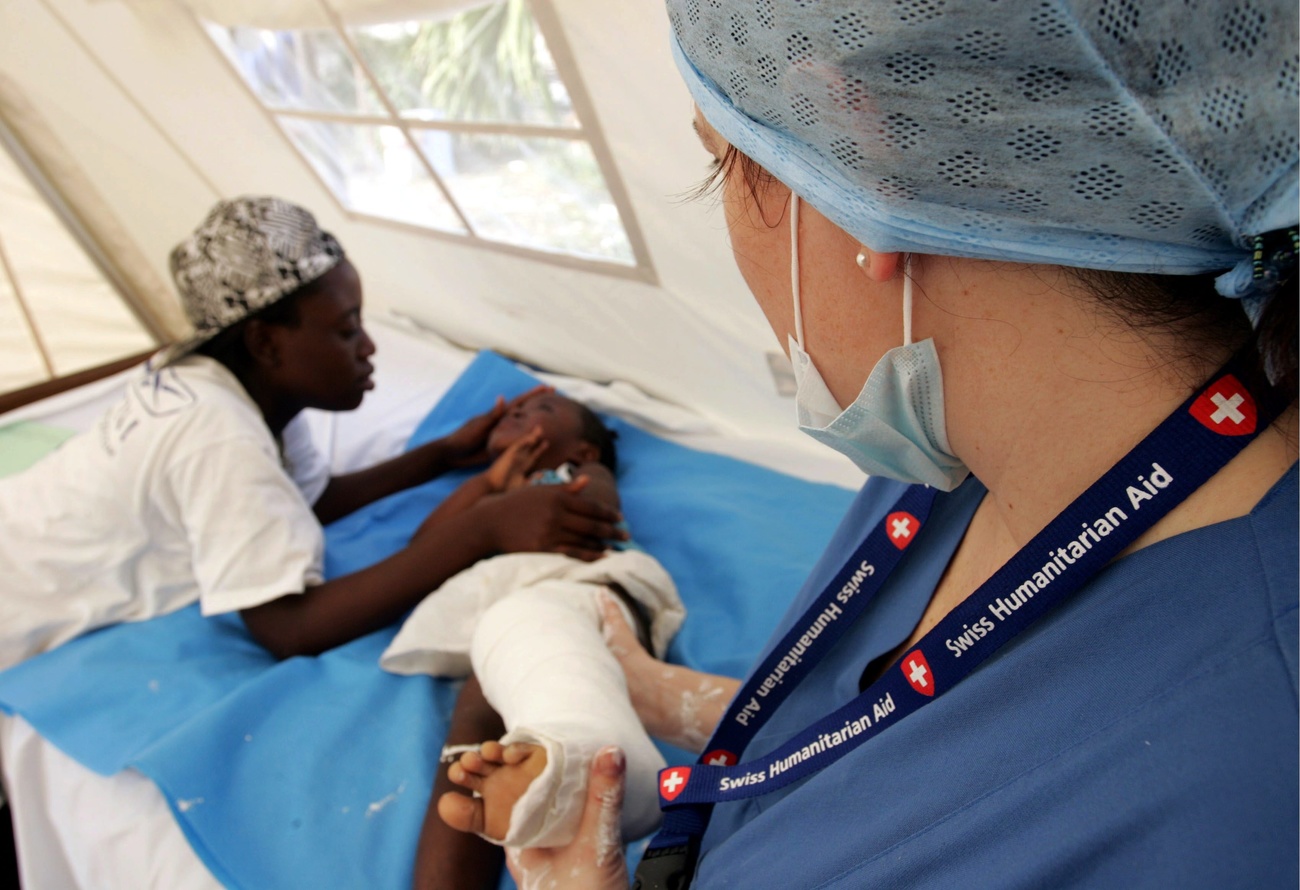
More
The risks of merging foreign aid streams

In compliance with the JTI standards
More: SWI swissinfo.ch certified by the Journalism Trust Initiative









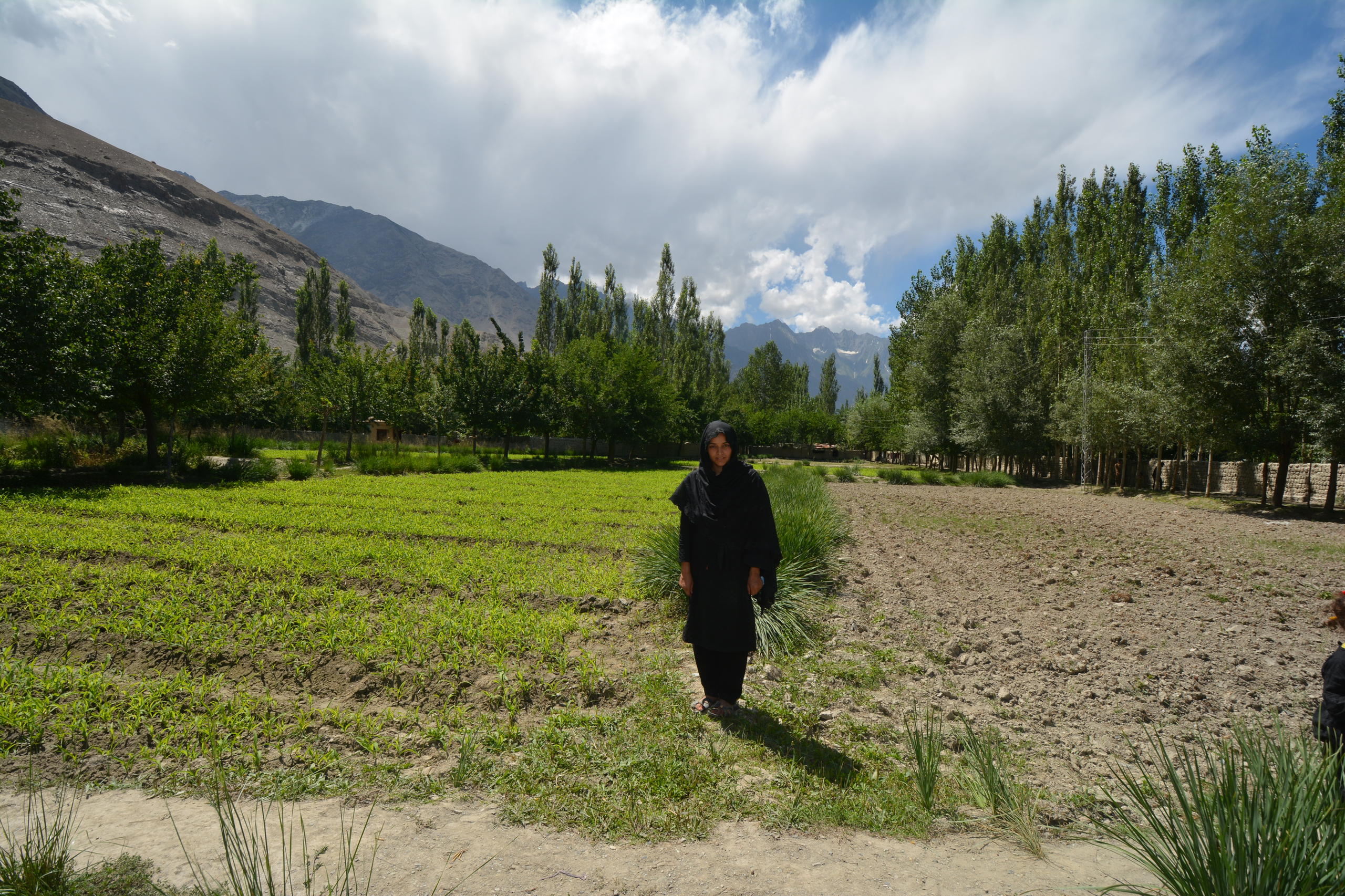
You can find an overview of ongoing debates with our journalists here . Please join us!
If you want to start a conversation about a topic raised in this article or want to report factual errors, email us at english@swissinfo.ch.